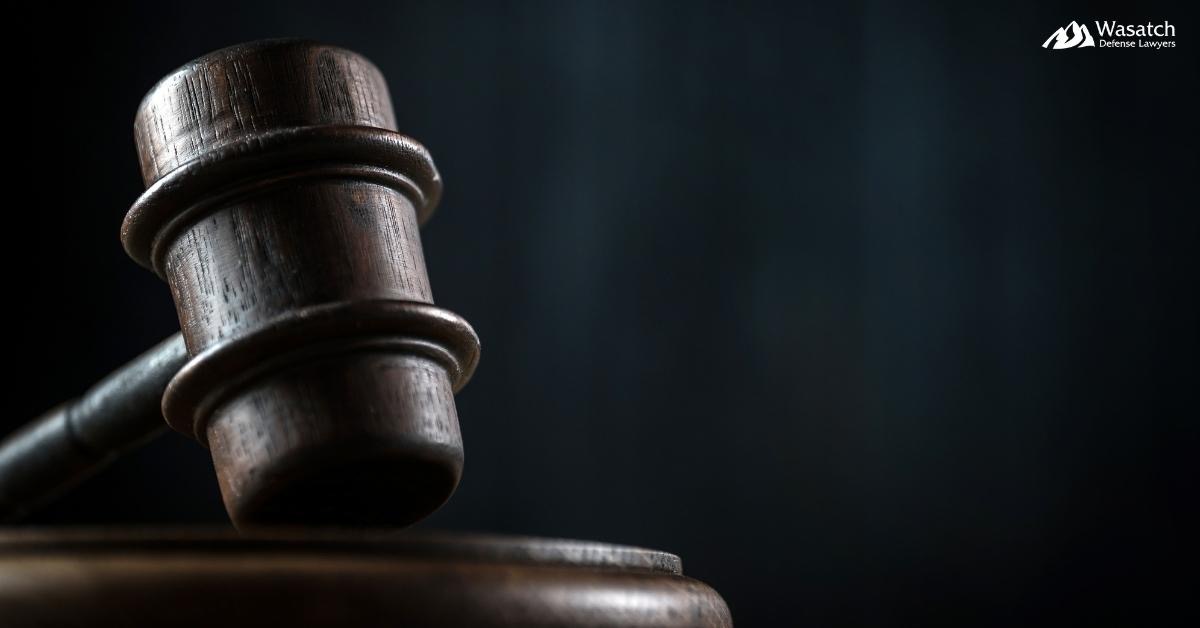What is Included in the Burden of Proof in Criminal Cases?
In a criminal case in Utah, the prosecution bears the burden of proof beyond a reasonable doubt that the accused person is guilty of the crime with which he or she is charged. This is a higher burden of proof than the plaintiff in a civil case bears, which is decided based merely on a preponderance of the evidence. In other words, prosecutors must present a larger amount of proof and in a sufficiently compelling way to meet the requirements for a criminal conviction of a defendant in a felony case.
Click to jump to section:
- What is the Burden of Proof in a Criminal Case?
- Various Prosecutorial Thresholds the Government Must Meet
- Proof of the 4 Elements of a Crime
- Responsibility of the Defense in a Criminal Case
- Best Felony Defense – Wasatch Defense Lawyers
What is the Burden of Proof in a Criminal Case?
Standards of proof vary between different types of charges filed and jurisdictions where trials are conducted. The national standard for the burden of proof in a criminal trial is, as stated, beyond a reasonable doubt. That burden of proof for the prosecutor in a criminal trial can be understood as actually consisting of two burdens: the burden of production, and the burden of persuasion:
Burden of Production
This means that the prosecutor is required by law to produce sufficient evidence so that it’s truth or falsehood of a given proposition can be determined by a fact-finder. The evidence in total should not necessitate an analysis and decision by a judge on whether or not it is adequate for acceptance by the court as true information.
Burden of Persuasion
This burden for a prosecutor is the obligation to introduce sufficiently compelling evidence to a fact-finder. That means that it is convincing enough to achieve the required degree of belief that the given proposition presented as a fact is true beyond a reasonable doubt.
Various Prosecutorial Thresholds the Government Must Meet
In addition to bearing the burden of proof described above, the prosecutor(s) are responsible for meeting those requirements while recognizing the following principles of jurisprudence. The boundaries of these principles must be obeyed while meeting the various corresponding burdens of proof described above.
These principles, together with the specific burdens of proof explained above, constitute the totality of the larger general burden of proof required for a criminal conviction:
76-1-501: Presumption of Innocence
Defendants in criminal cases are presumed innocent until every element of the crime charged against them is proven beyond a reasonable doubt. To meet that threshold, prosecutors must prove that all four elements required for an act to be defined as a crime exist in the case. See the section below: Proof of the 4 Elements of a Crime.
76-1-502: Negating defense by allegation or proof
The law requires that in the indictment or charges or proof they present to the court, prosecutors negate a defense that the accused presents, if that defense is an issue in the case due to evidence presented at trial (by either the prosecutor or the defense). This requirement also applies if it is an affirmative defense and the defendant has provided evidence supporting it.
76-1-503: Presumption of fact
Although there are presumed facts, those must each be proven beyond a reasonable doubt. The law views the facts that support the presumption as evidence that the presumed fact is true.
76-1-504: Affirmative defense by the defendant
In an affirmative defense, the defendant introduces evidence that he or she was justified in committing the act that he/she has been charged with as a crime.
Proof of the 4 Elements of a Crime
The four elements of a crime, as defined under Utah Code 76-2-103 must all be present in a person’s action for that act to be legally defined as a crime:
- Culpable mind: The defendant’s state of mind was guilty.
- Criminal act: A harmful act actually occurred.
- Culpable mind and criminal act: The guilty mind and the harmful act happened together.
- Cause of harm: The harm was caused by the defendant directly.
The Responsibility of the Defense in a Criminal Case
As you can see, the burden of proof that the prosecutor bears is not an easy one. Fortunately, the defense does not bear the burden of proof. However, realistically, your freedom and future are at stake in a criminal trial. That means the defense must provide counterarguments as factually compelling and convincing as those the prosecutors present to overcome them. So, if you face felony charges, you need the best criminal defense lawyer Utah offers to build the strongest possible case for you.
Best Felony Defense – Wasatch Defense Lawyers
We are a team of top criminal defense attorneys who help people facing felony charges in Salt Lake City, Utah. We specialize in defense against sex crimes charges. Our highly experienced legal team immediately works to get your charges dropped or substantially reduced. Our focus is on keeping you out of jail, off the Utah sex offender registry, and avoiding a criminal conviction record. If you have been arrested on felony charges, call Wasatch Defense Lawyers at (801) 980-9965, or contact us online to schedule a free case review and discuss your options.
- Understanding the Legal Consequences of Enticement of a Minor in Utah - July 29, 2024
- The Role of Consent in Defending Sex Crime Cases in Utah - June 5, 2024
- 7 Tips for Choosing the Best Sex Crimes Attorney - May 31, 2024

